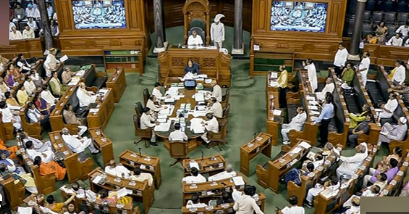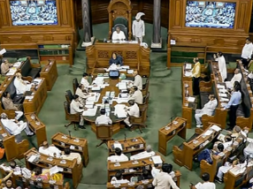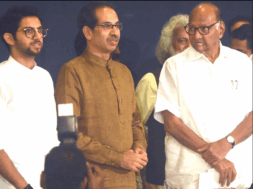
NEW DELHI, Dec 21: The Parliament on Thursday passed the three historic legislations for Indenisation of criminal laws by overhauling the British-era acts. The three bills Bharatiya Nyaya (Second) Sanhita Bill (BNSS) will replace the Indian Penal Code, 1860; the Bharatiya Sakshya (Second) Bill (BSS) will replace the Indian Evidence Act, 1872; and the Bharatiya Nagarik Suraksha (Second) Sanhita Bill (BNSSS) will replace the Criminal Procedure Code (Cr.PC), 1898.
The bills, which were passed by the Lok Sabha on Wednesday were adopted by the Rajya Sabha by voice vote on Thursday largely in the absence of the opposition members who were protesting outside for the suspension of 146 MPs for creating ruckus in the House. This criminal law reform brings terrorism offences into a general crime law for the first time, drops the crime of sedition, and makes mob lynching punishable by death.
The Lok Sabha was adjourned sine die, a day ahead of schedule, after passing the Chief Election Commissioner and other Election Commissioners (Appointment, Conditions of Service and Term of Office) Bill, 2023. Rajya Sabha had already passed the Bill on December 12. The House also passed the Press and Registration of Periodicals Bill, 2023 via voice vote.
In the Rajya Sabha the Telecommunications Bill, 2023 was passed. The Upper House then took up the three criminal law Bills for discussion. The bills were then passed via voice vote. The Lok Sabha had also passed the omnibus Telecom Bill 2023 which will replace existing laws, including the 138-year-old Indian Telegraph Act.
Earlier in the day, Lok Sabha resumed proceedings with Opposition members continuing their protest. Members were heard chanting, “tanashahi nahi chalegi [dictatorship will not work],” in the House even as the Question Hour continued.
(Manas Dasgupta)













